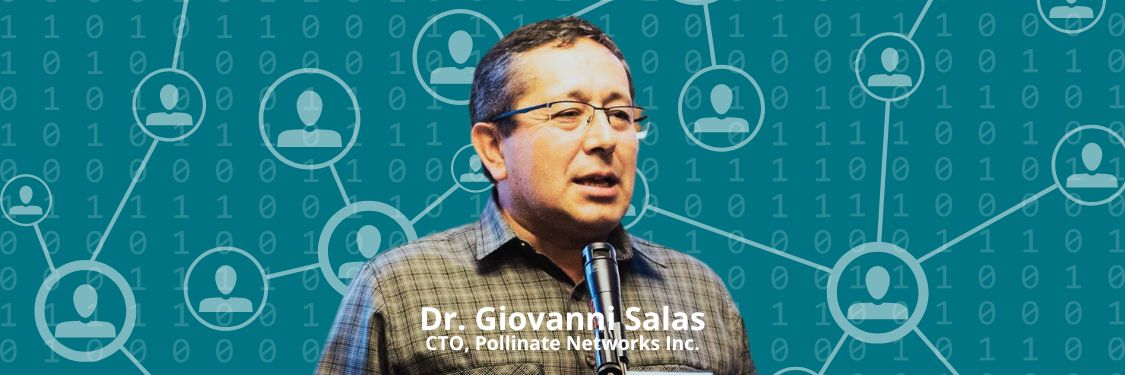The future of work is here, and connection is priority #1
As workers move away from remote to hybrid workspaces, connection holds the key to productivity and retention. A hybrid workplace includes both in-office and remote work scenarios for employees. When companies do it right, there’s a seamless workflow, no matter where each employee logs in from. Employees should be able to work from home two or three times a week without feeling disconnected. How can you make this idyllic scenario the reality in your office?
Connection is the glue that holds your team together — or not. Further, a strong mentorship program, based on chemistry and compatibility, can help your company from becoming another statistic of the Great Resignation movement.
Addressing the Great Resignation with phenomenal mentorship programs
Millions of people are still leaving their jobs, a trend first noted in 2021 by the Harvard Business Review. The Great Resignation underscores a general dissatisfaction in the workplace. Now is the time to build connections within organizations to defend against this threat.
Dissatisfaction with management, poor work-life balance, and working conditions have caused millions of employees to stretch their wings for opportunities over the next horizon. If your employees have stayed this long, you must be doing something right. However, you can do even better with formal mentorship programs that provide guidance and care to new hires and other workers.
Although 48 million people have already left, you can keep the employees you have, with the right business practices.
So, how will employers address concerns about the impact of remote work on productivity, engagement, effectiveness, well-being, and work culture? By creating deep connections, mentorship programs likely hold the key.
Reskilling and resilience
This dramatic shift in how and where we work, and the explosion of new technologies to support it, will call for rapid reskilling and a culture of lifelong learning to build resilience among workers. The World Economic Forum’s The Future of Jobs Report 2020, cites the top skills that will be required by 2025, including:
- Complex problem-solving
- Active learning and learning strategies
- Leadership and social influence
- Creativity, originality, and initiative
- Resilience, stress tolerance, and flexibility
- Increasing flexibility
The trend to increasing flexibility will continue to escalate, shifting from “location to time,” writes Brian Kropp, chief of research for the Gartner HR practice, in Harvard Business Review. “While enabling employees to work remotely became commonplace across 2020 (and will continue this year and beyond), the next wave of flexibility will be around when employees are expected to work… In 2021, I expect to see a rise of new jobs where employees will be measured by their output, as opposed to an agreed-upon set of hours.”
Strategies for connection and learning
Strategies and tools to build and maintain connection and support learning among individuals and across organizations, networks, and ecosystems will be essential – priority #1 – for success in the future of work.
“To address concerns about productivity and well-being, about one-third of all employers expect to also take steps to create a sense of community, connection and belonging among employees through digital tools, and to tackle the well-being challenges posed by the shift to remote work,” the World Economic Forum report states.
Mentorship is the glue
“Show me a successful individual and I’ll show you someone who had real positive influences in his or her life. I don’t care what you do for a living—if you do it well, I’m sure there was someone cheering you on or showing the way. A mentor.” — Denzel Washington
Mentorship is a proven strategy that glues an organization together, delivering higher engagement and retention rates while cross-pollinating knowledge and new skills across silos and management levels. (See 4 key benefits of mentoring here).
Get more strategies to support employee well-being, build social connection, ensure productive meetings, and keep things agile in the virtual workspace.
Here are three suggestions by Forbes based on a study regarding workplace connectivity:
- Stay engaged. “While texting and instant messaging are literally at our fingertips…if you truly desire for your team members to feel connected to one another, ensure that you use richer forms of communication. Otherwise, you may be inadvertently sowing the seeds for disconnection and even departure,” according to a recent Forbes article.
- Give new hires the support they need. When new hires don’t feel supported or engaged, they are more likely to leave the company after a short stint. A hybrid workplace complicates this because you may not be able to communicate with them directly every day. So, focus on layered communication and increasing opportunities for involvement. Include one-on-one meetings to address their concerns or discuss ongoing projects.
- Overcome fear. “Promoting more human forms of connection can provide immense benefit to ourselves and those around us,” according to the Forbes article.
Are you ready to cross-pollinate connection in your workplace? Cross-Pollinate AI™ is a well-designed algorithm that can match new hires or those seeking coaching with the right mentors.




